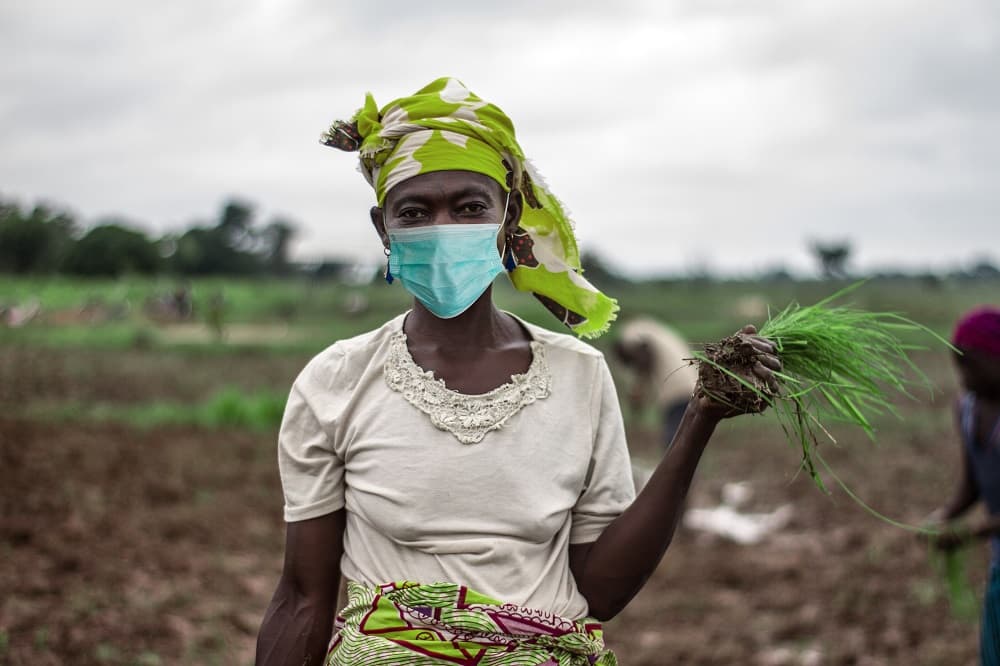We're loading the full news article for you. This includes the article content, images, author information, and related articles.
Kenya’s fertilizer depot looting exposes deep flaws in agricultural policy and food security planning. With climate pressures mounting and rural anger rising, reforms must shift toward decentralized, climate-smart, and transparent systems that rebuild trust and resilience.

Byline: Nairobi, Kenya –
As Kenya confronts a deepening cost of living crisis, food security has become a flashpoint for political unrest and public outrage. Incidents such as the recent looting of a fertilizer depot in Eldoret — amid allegations of expired and diluted inputs being supplied to farmers — have crystallized public frustration with the government’s agricultural policies. While the state touts ambitious reforms to boost local production and reduce dependency on imports, the lived reality for many farmers and consumers tells a different story.
The fertilizer depot looting was not an isolated act of theft — it was a protest, a signal of broken trust between rural communities and the institutions meant to serve them. Farmers, facing skyrocketing input costs and declining yields, have accused the National Cereals and Produce Board (NCPB) and affiliated agencies of distributing substandard or expired fertilizer, despite government subsidies.
Investigations revealed that some of the fertilizer batches supplied under the state’s subsidy program were indeed compromised — either adulterated or expired. For farmers who rely on every harvest for survival, such failures amount to economic sabotage. Opposition politicians have seized on the scandal to galvanize support in rural counties, demanding accountability from Agriculture Cabinet Secretary Mithika Linturi and questioning the viability of President William Ruto’s flagship Bottom-Up Agricultural Transformation Agenda (BETA).
Kenya’s agricultural sector contributes over 30% to the GDP and employs nearly 70% of the rural population. Yet, systemic inefficiencies, inconsistent subsidy delivery, and climate shocks continue to erode its backbone.
The BETA program, launched in 2023, promised mechanization, subsidized inputs, value chain investments, and export market access for staple and high-value crops. However, delayed disbursements, corruption scandals, and poor extension services have hindered uptake. According to a June 2025 Ministry of Agriculture internal report (leaked to the public), only 43% of intended smallholder beneficiaries received complete support packages during the 2024-25 planting season.
Moreover, critics point to the top-down nature of many agricultural reforms. “Rural farmers don’t just need tractors and fertilizer — they need transparency, storage infrastructure, and market linkages,” says Jane Muthoni, an agricultural economist at Egerton University. “When decisions are made in Nairobi and implemented in isolation, failure is almost guaranteed.”
Kenya’s food security woes are also shaped by external pressures: prolonged droughts, erratic rainfall due to climate change, and disruptions in global commodity flows — worsened by conflicts like Russia’s war in Ukraine.
In arid and semi-arid lands (ASALs), recurring drought has decimated livestock and left over 2.5 million Kenyans food insecure as of mid-2025. The government’s pivot to climate-smart agriculture — including drought-tolerant crops, solar irrigation, and digital weather services — remains unevenly deployed.
Additionally, the removal of maize and rice import quotas in early 2025, aimed at reducing consumer prices, has drawn backlash from domestic producers, who fear being undercut by cheaper imports from Tanzania, Uganda, and Asia.
The agriculture sector’s failures have fueled growing discontent, especially among Kenya’s youth-led protest movements. Once a cornerstone of Ruto’s hustler narrative, small-scale farmers now say they feel abandoned, despite campaign promises to the contrary.
The opposition Azimio coalition has launched grassroots forums across breadbasket counties, tapping into frustrations with what they call “agricultural betrayal.” Meanwhile, county governments — especially in Rift Valley and Western regions — are demanding greater autonomy over fertilizer procurement and agricultural extension services, arguing that national agencies have lost credibility.
A symbolic moment came in June when a group of Eldoret farmers, after returning unsatisfactory fertilizer bags, left them outside the Uasin Gishu County offices with handwritten notes reading: “We plant with hope, but you sow deception.”
Decentralize Input Distribution: Shift procurement and oversight of farm inputs to county-level institutions with public participation, minimizing bureaucracy and improving trust.
Enhance Farmer Data Systems: Invest in real-time digital registries to ensure accurate targeting of subsidies and prevent fraud or ghost beneficiaries.
Scale Up Climate-Smart Initiatives: Fund local cooperatives to lead adoption of drought-resilient crops, regenerative farming, and efficient irrigation.
Reform NCPB and Oversight Bodies: Conduct a full audit of the NCPB and the Kenya National Trading Corporation (KNTC) with parliamentary oversight, and ensure consequences for malpractice.
Market Infrastructure Investment: Build rural aggregation centers, cold storage, and processing facilities to reduce post-harvest losses and empower farmers to access regional markets.
Conclusion:
Kenya’s path to food security must go beyond populist subsidies and reactive measures. It requires deliberate, farmer-first policies that are accountable, inclusive, and climate-resilient. The looting of the fertilizer depot may have been a flashpoint, but it revealed deeper cracks in a sector vital to national stability. If agriculture is to feed the nation and grow the economy, it must also earn back the public’s trust — seed by seed, season by season.
Keep the conversation in one place—threads here stay linked to the story and in the forums.
Sign in to start a discussion
Start a conversation about this story and keep it linked here.
Other hot threads
E-sports and Gaming Community in Kenya
Active 9 months ago
The Role of Technology in Modern Agriculture (AgriTech)
Active 9 months ago
Popular Recreational Activities Across Counties
Active 9 months ago
Investing in Youth Sports Development Programs
Active 9 months ago